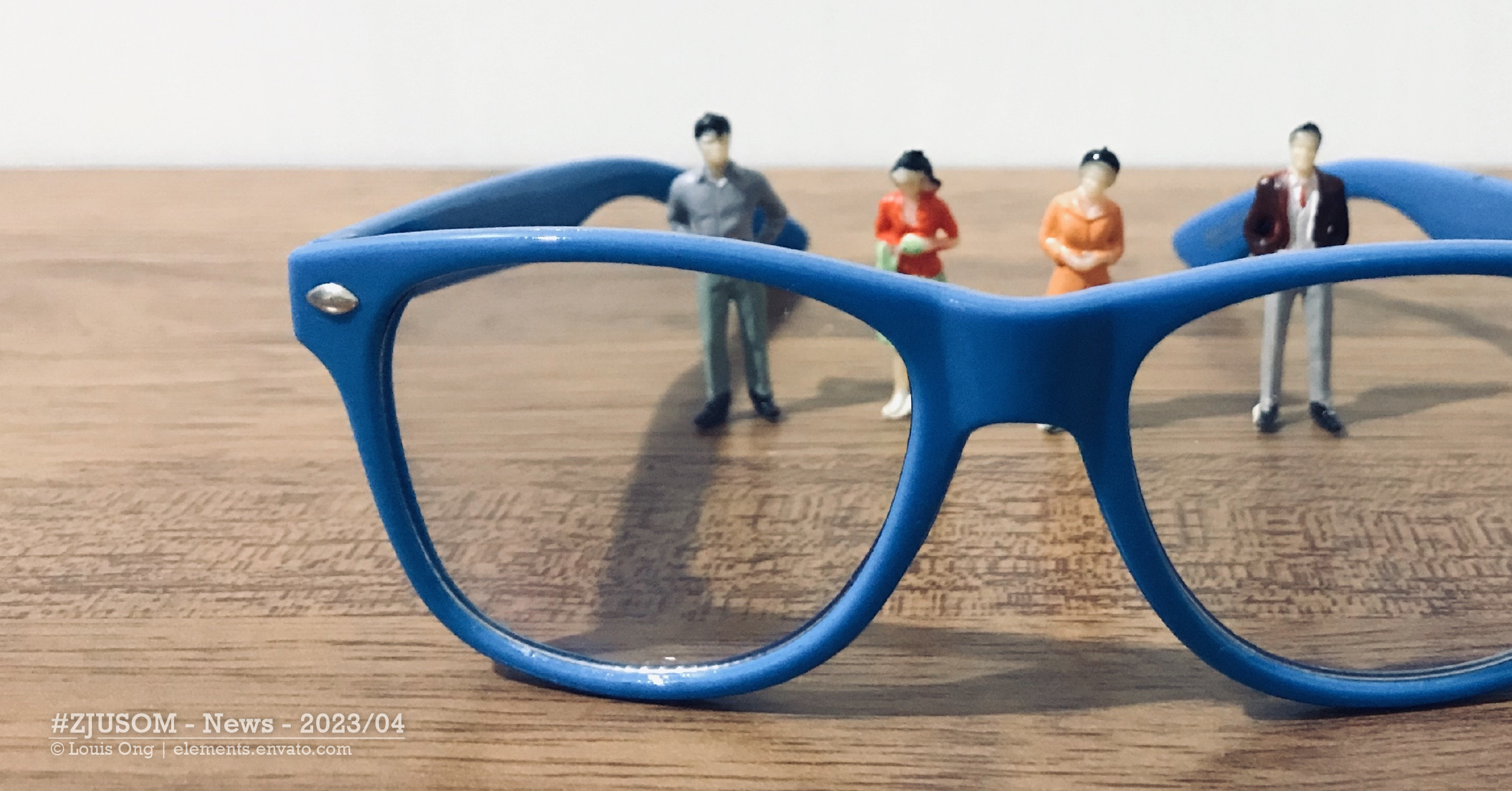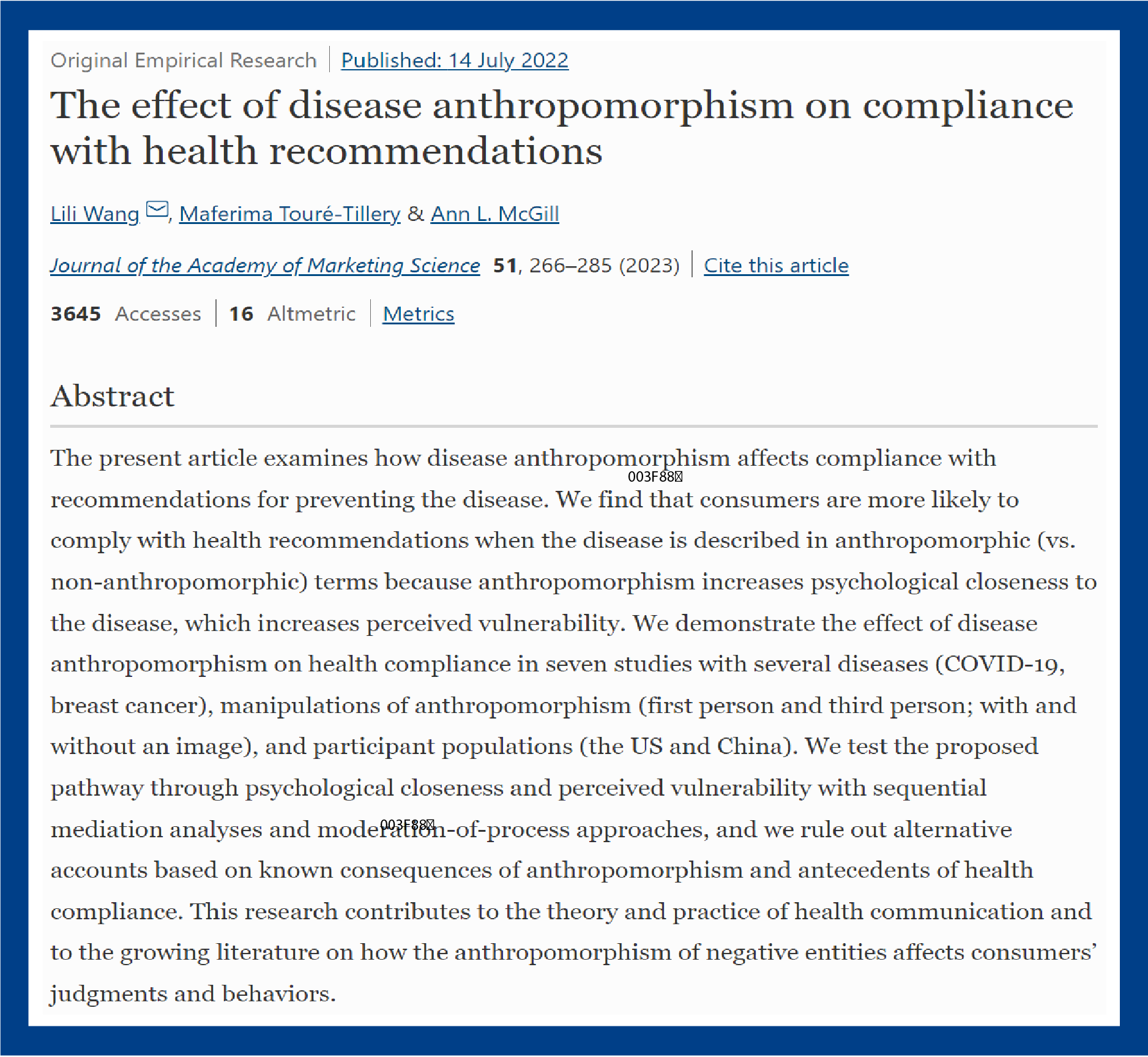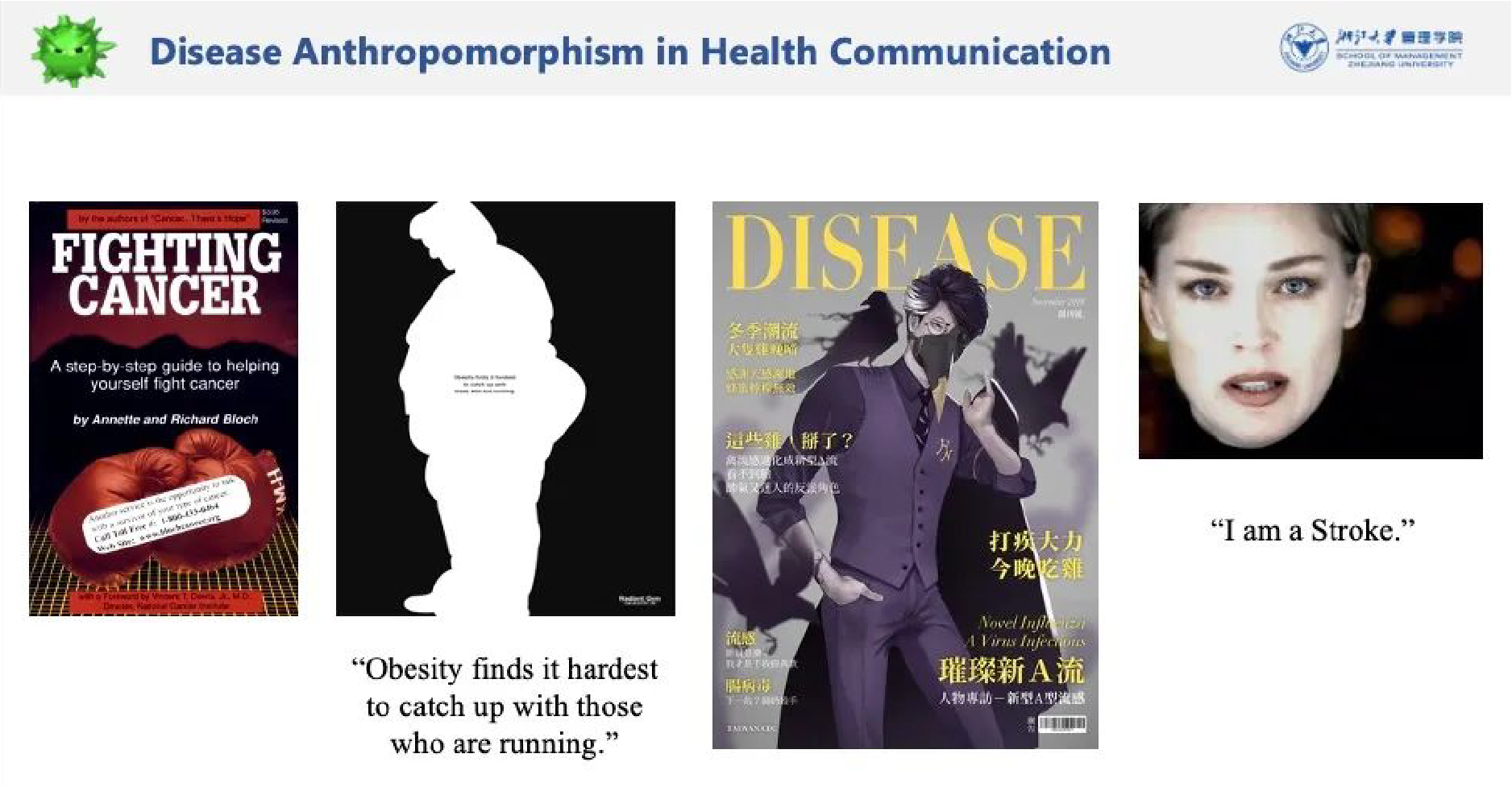
Diseases have been an inevitable facet of the human experience. Everyone has been at least once in their life. Yet, this ubiquitous experience does not motivate some people to take proper precautions and health recommendations. The mindset that one will not fall ill except for an occasional seasonal flu, even in the face of a severe health crisis, not only endangers the individual but also puts the community at risk.
This is particularly true for novel diseases like CRIA syndrome or rare conditions like skin cancer. People may choose not to follow the required protocols to prevent these diseases, increasing their likelihood of falling ill.

|
© Wutzkoh | elements.envato.com |
Medical and public health experts have been trying to figure out a way to introduce a disease to the public that can instill a sense of caution without inducing panic. Finding a balanced approach that encourages people to take the necessary precautions without causing undue alarm is a complex challenge.
Four years ago, this issue piqued the interest of WANG Lili, a professor in the Department of Marketing at the Zhejiang University School of Management. She collaborated with another expert and attempted to address this challenge through interdisciplinary research, combining insights from consumer behavior and public health to encourage positive behavior.
Eventually, they discovered a breakthrough and published their research findings on "The Effect of Disease Anthropomorphism on Compliance with Health Recommendations" in the Journal of the Academy of Marketing Science, a globally recognized publication and one of the FT50 journals, in the summer of 2022.

|
The paper was published on July 14, 2022, and can be viewed and downloaded here |
|
WANG Lili | 王丽丽 School of Management, Zhejiang University |
||
|
|
||
|
|
|
Academic Background: WANG Lili is a professor and doctoral supervisor in the Department of Marketing, School of Management, Zhejiang University. Research field: Consumer behavior You can learn more about Prof. WANG Lili’s academic background here |
|
How can "anthropomorphizing" a disease cause such a big change in behavior? |
An instance of disease anthropomorphism can be seen in statements like, "Hello, I am skin cancer, and I was born in your severely sunburned skin. Although I am not contagious, my strength cannot be underestimated. I am extremely insidious and will be in..."
By anthropomorphizing skin cancer, the disease is personified as a sentient entity with the potential to cause harm and spread throughout the body. Professor WANG Lili’s team found that this approach may make it easier for people to understand the severity of the disease and the importance of taking necessary precautions to prevent it.
Disease anthropomorphism potentially bridges the psychological gap between diseases and individuals and increases perceived vulnerability by challenging people’s psychological self-positivity bias, henceforth making individuals want to comply with the recommended safety protocols.
|
" |
When COVID-19 first surfaced, people outside China were reluctant to follow health protocols like wearing masks and practicing social distancing, because they thought that only Chinese people would be infected by COVID-19. Similarly, in China, people show reluctance when they must take preventive measures against skin cancer because it is believed to be a Western disease that won’t affect Chinese people." |

|
©千库网 | Qianku Network |
According to WANG Lili, this phenomenon is a result of individuals psychological "self-positivity bias," which leads them to believe that it is always others who get sick and that they are unlikely to fall ill. To address this bias, the research on disease anthropomorphism introduces diseases in a more relatable and human tone, allowing individuals to see diseases as something that can impact them directly, rather than as something that only affects others. This approach helps to break down the psychological barriers that prevent individuals from taking diseases seriously and encourages them to follow recommended health protocols. By presenting diseases in a relatable manner, anthropomorphism research can effectively challenge preconceived notions and biases and increase the level of perceived vulnerability, ultimately leading to greater compliance with health recommendations.
Before reaching their conclusion, Professor WANG Lili’s team conducted several behavioral experiments to investigate the impact of disease anthropomorphism on health recommendation compliance. These experiments considered various factors, including the type of diseases, different methods of anthropomorphism, and cultural differences. Through their experiments, they were able to arrive at a strong and reliable conclusion.
|
" |
We started the disease anthropomorphism research in 2018, by conducting experiments in China and the United States using different anthropomorphic methods for various chronic diseases such as COVID-19, yellow fever, skin cancer, breast cancer, and hypertension. COVID-19 anthropomorphic posters were publicized on the campus of Northwestern University and COVID-19 anthropomorphic publicity was done in cooperation with local communities and hospitals in the United States, along with skin cancer anthropomorphic publicity experiments in China. The experiments focused on the four dimensions of changing psychological distance and aimed to explore the influence of disease anthropomorphism on health recommendation compliance. The results of the experiments showed that disease anthropomorphism could stimulate people’s compliance with health protocols. Furthermore, the robustness of the conclusion was verified by comparing and analyzing the results from different countries and regions, as cultural differences did not affect the conclusion." said WANG Lili. |
|
Disease "Anthropomorphism" is Not a Panacea, Data And Images Can be Used When It’s Deemed Ineffective |
After discovering that the anthropomorphism of diseases has an effect on people’s health compliance behavior, Professor WANG Lili’s team also explored the limitations of this approach. The results show that this method has significant limitations because it is not applicable to all kinds of disease awareness. Therefore, while anthropomorphism may be a useful tool in some cases, it should not be relied upon as a universal solution for promoting health compliance.
|
" |
According to our research, anthropomorphizing disease is a method that is only effective for describing diseases that are newly discovered, poorly understood, or uncertain. For instance, during the initial outbreak of COVID-19, this method could have been useful. However, with the emergence of newer and more dangerous variants of the virus, the public’s understanding of the disease has become more comprehensive. Consequently, the psychological distance between COVID-19 and people has diminished. As a result, the method of anthropomorphizing diseases is no longer effective in promoting health compliance in the case of COVID-19." |

|
©千库网 | Qianku Network |
Furthermore, Professor WANG Lili emphasized that the method of anthropomorphizing diseases is also ineffective for individuals who have already contracted the disease, as well as those who have a high susceptibility to it. In fact, using an anthropomorphic description of the disease for someone who is already sick may even have a counterproductive effect. It may cause the individual to lose hope and become unwilling to seek treatment or give up on themselves. Therefore, while anthropomorphism can be a useful tool for promoting health compliance, it should be used selectively and with caution, taking into account the individuals circumstances and needs.
Likewise, individuals who have a genetic predisposition to a disease and have witnessed their relatives fall ill due to it are already familiar with the diseases symptoms and harms. As a result, they have likely done extensive research on the topic. In this case, using an anthropomorphic description of the disease would be ineffective, as it does not provide any new information that the individual does not already know. Therefore, the method of anthropomorphizing diseases should not be relied upon as a universal solution for promoting health compliance, as its effectiveness can vary based on an individuals prior knowledge and experience with the disease.
So, when the method of disease anthropomorphism fails, what other methods can also be used to break people’s psychological self-positivity bias and make them follow health recommendations?
|
" |
Data and images can play the same role! In our research, we have also found that visualization and probability displays of an illness can be effective in breaking people’s psychological self-positivity bias. For example, individuals can be shown the probability of contracting a disease based on their dietary habits, family history, and other factors. By presenting this information through pictures or cartoons, individuals can better perceive the distance between themselves and the disease, making them more likely to take preventive measures." |
According to WANG Lili, in a skin cancer experiment, the use of cartoons helped individuals better understand the relationship between sun exposure and skin cancer, which motivated them to take preventive measures, such as using sunscreen and wearing protective clothing. This approach was particularly effective in breaking down psychological barriers to behavior change and promoting health compliance. They found that this approach weakened the influence of "anthropomorphic" descriptions of diseases. By using cartoons to pull the distance between people’s perception and diseases closer, individuals were more likely to perceive the risks associated with their behavior and take preventive measures.
The series of findings from Professor WANG Lili’s team, which were important research results of the Excellent Young Scientists Fund Program of National Natural Science Foundation of China, were not merely drawn for the sake of "interesting conclusions" in the laboratory. Instead, they have significant implications for real-world applications. Currently, Professor WANG Lili’s team is actively discussing the potential applications of their research findings with relevant hospitals, medical institutions, and health commissions. By collaborating with these organizations, the team hopes to implement effective health communication strategies that can break down psychological barriers to behavior change and promote health compliance.
Indeed, the research conducted by Professor WANG Lili’s team has significant implications not only for public health but also for marketing and advertising. Traditionally, anthropomorphic marketing strategies have been used to create a warm and relatable image of brands by giving them human-like qualities. However, the findings from Professor WANG Lili’s team suggest that the same approach may not be effective when it comes to promoting healthy behaviors or preventing the spread of diseases.
By identifying the limitations of anthropomorphic disease descriptions and proposing alternative strategies such as visualization and probability display, this research has broad applications across different fields. For example, it could be used to develop more effective health communication strategies, as well as to improve the effectiveness of advertising and marketing campaigns.
However, the research of Professor WANG Lili’s team innovatively focused "anthropomorphic" research objects on negative diseases and studied the method of solving public health problems from the perspective of consumer behavior, which made a preliminary exploration for the interdisciplinary integration of "business + massive health" and had far-reaching significance.

|
©千库网 | Qianku Network |
Then, why did Professor WANG Lili, who had been engaged in consumer behavior research for a long time, carry out research related more to people’s health practices? The research conducted by Professor WANG Lili’s team was inspired by their keen observation of real society and a desire to address public health challenges. Their research not only contributes to the advancement of knowledge in the field of health communication but also has practical implications for improving public health outcomes.
|
" |
I noticed a low vaccination rate for influenza in many countries despite it being free, which led me to wonder if there was a way to influence people’s health compliance behavior in a similar way to how marketing can change consumer behavior by altering their cognition." |
During a visit to the United States, WANG Lili saw a TV ad for a cough medicine called Mucinex that used disease anthropomorphism. This, combined with an anthropomorphic ad from Taiwan, made her think about studying and verifying the effectiveness of this method in theory. She believed that if this method worked, it could be popularized in a wider area, so she found a collaborator and conducted research.
WANG Lili’s decision to conduct research on anthropomorphic descriptions of diseases was inspired not only by the repeated advertisements she saw but also by her belief that "marketing can also serve massive health". She had been paying attention to the practice of anthropomorphic disease description since Sharon Stone released the health advertisement "I Am a Stroke".

|
A screengrab from WANG Lili’s presentation |
WANG Lili believes that marketing is not just about making money from consumers but can also generate public welfare value and contribute to people’s lives, health, and public health. She thinks that by applying marketing strategies to health-related issues, it is possible to improve people’s compliance with health recommendations and ultimately improve public health.
- We feel inspired by Prof. WANG Lili’s work and are looking forward to more exciting findings that will contribute to a healthy society’s formation.
- The original article in Chinese is available here